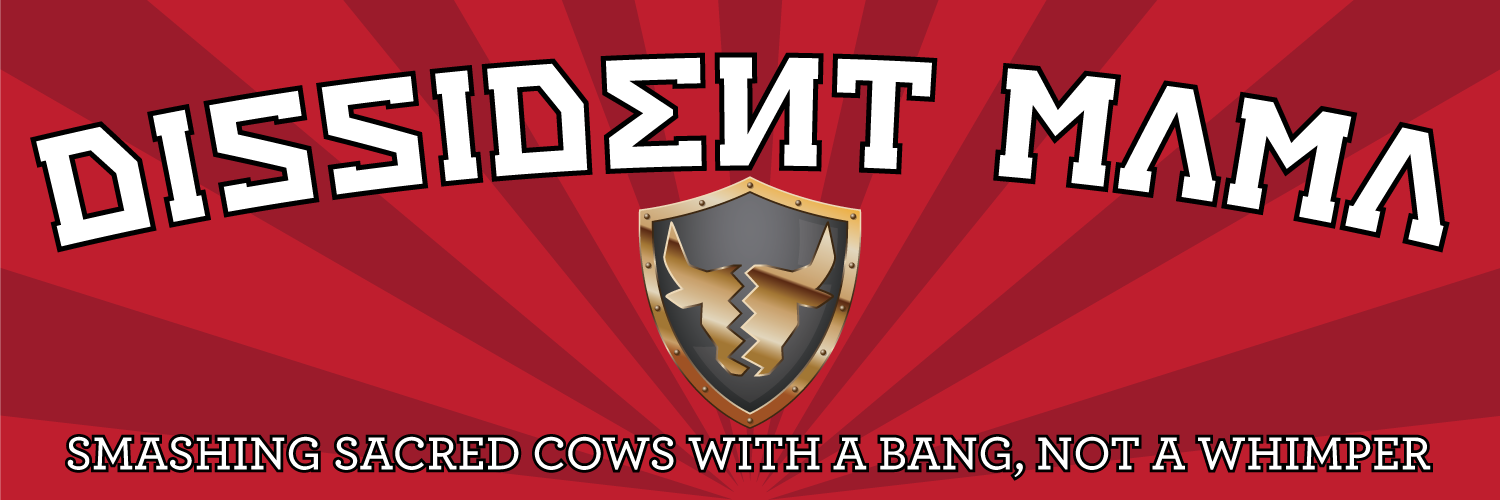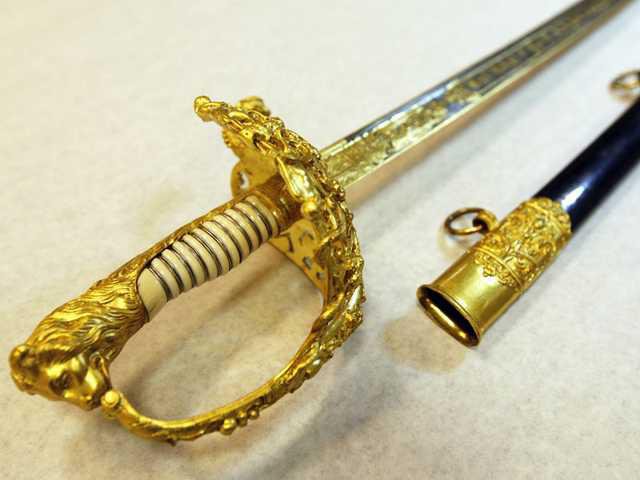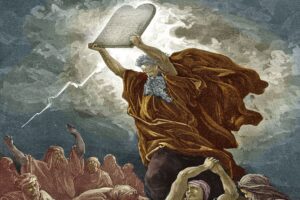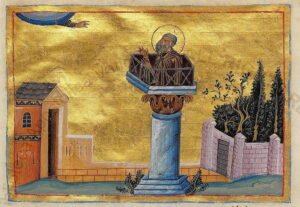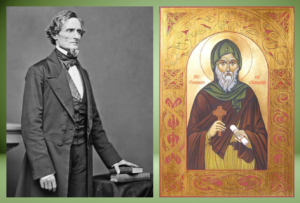By Walt Garlington
Was there really chaos in the world?
It seemed distant to Constantius Lee,
Riding amidst the mountains’ beautiful scenes.
But that turmoil, unhappily, was all too real,
The combined Ukraine-Taiwan War had gone amiss,
Predictably, thanks to DC’s lunatic analysts.
The union had collapsed; survival was a struggle.
Violence and disorder held heavy sway
In many States. Seeing his Southland in such disarray,
Constantius embarked on a journey
To make her well, a quest to find the relic
That could unite all Dixie and calm her cholic:
The Apostle Andrew’s holy right hand,
Brought to North American shores fifteen-hundred
Years before, when Saint Brendan the Voyager led
His Celtic monks across the sea in a leather boat.
Recalling the legend, he saddled his horse,
Bowed in prayer, girded on his forebear’s golden sword,
And set their course for the Ridge and Valley Mountains,
Where the Ogham script in West Virginia had been found.
As they neared the place, the verdure did abound,
A land a-glow in emerald greens of leaf and needle,
A bewildering tapestry of beauty,
Of cedar, oak, willow, dogwood, cherry,
And others, too, so delightfully interwoven
He could scarcely keep in mind the end he sought.
But then one night, in the moon’s silver light, he thought
In the distance there stood a human structure
Atop a towering peak. He urged his steed
To quicken pace, and soon stood before a temple grand indeed.
All of wood with an ancient bearing, it blended
Perfectly with the trees surrounding, as though
No separation among them could be owned.
Constantius dismounted from his chestnut charger,
Slowly and in awe. And in the door stood
A man so old and ven’rable he in no way could
Remain upon his feet, but knelt before him
With utmost rev’rence. “Hail, Constantius Lee!”
Came the strong, melodious voice. “For thee,
“Long have we waited. My master Abba Brendan
Foresaw this day long ago. After establishing
This monastic center, he revealed to me
“His vision: ‘Blessèd are you, Maelrhys of Wales!
God has chosen you to guard this ground and its treasure
Until there comes to claim it the intended owner.
“ ‘A ray of Light from God enthroned on high
Is resting upon the crown of thy youthful head.
By this I know that you shall outlive all the brethren.’
“And so I have remained for three half-millennia,
Sustained by the Holy Mysteries brought me
In a chalice once each year by an angel heavenly
“On the Bright Day of our Lord’s Resurrection,
And by a loaf of manna-bread also left by him,
To partake of throughout the year, when eyes grow dim,
“As I awaited the arrival of the chosen man.
And now by the sword of your ancestor wearing,
And the features of your noble bearing,
“I see that thou art he. Please, come with me.”
With his hand upon Lee’s shoulder, Constantius rose
With ease, and behind the church he followed
His guide into a little glade overspread
With ancient branches. Beneath them glowed a cross,
In the light of which Lee could see Maelrhys
Clearly, his grey, knee-length beard, and his simple
White tunic. When Maelrhys reached the cross, the earth
Before him parted, and a case with no dearth
Of precious ornaments rose to the surface.
He made many prostrations before it
Before taking it in his hands, kissing it,
And placing the relic in Lee’s possession.
“The incorrupt right hand of St. Andrew.
By the Grace therein, lead your people well and them renew.
“But one thing more you must fulfil before you go:
My body you must bury in the ground from whence
Came this precious hand. My role as guardian
“Has ended, and, now, so shall my earthly life.”
Maelrhys lay down, crossed his arms upon his chest,
And breathed out his ghost in the joy of the blessed.
His body, suddenly redolent with sweet fragrance,
Sank into the earth. Lee, tears burning his eyes,
Covered it till summoned at the Second Coming to rise.
Securing the relic to Galen’s saddle,
Constantius rode to accept his destiny,
To bear the cross of leadership that shall
Ever belong in the South to the noble name of Lee.
Editor’s note: The feature image at top is of Robert E. Lee’s sword, the blued-steel scabbard he carried during the Confederate surrender at Appomattox. Countering the “enduring myth” that Virginia’s most famous general relinquished his 40 1/2-inch French-made sword to Union forces that fateful April day, well, as it turns out, “Lee never offered it, and Grant never asked for it.” On the opposite side of the blade where his name is emblazoned in raised letters are the words “Aide toi dieu l’aidera,” meaning “Help yourself and God will help you.”
Walt Garlington is a chemical engineer turned writer and editor of the website Confiteri: A Southern Perspective.
